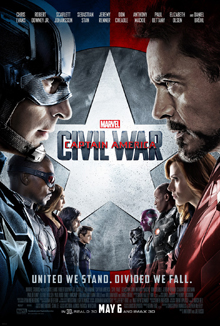The Marvel Cinematic Universe (MCU) is a vast and intricate world filled with superheroes, villains, and epic battles. Among the many films in this universe, “Captain America: Civil War” stands out as a significant turning point. This film not only advanced the storyline of Captain America but also reshaped the dynamics of the MCU. In this article, we explore the impact of “Captain America: Civil War” on the Marvel Cinematic Universe, its characters, and the broader cultural landscape.
The Plot of Captain America: Civil War
“Captain America: Civil War” begins with a mission led by Captain America and his team. However, things take a turn when a conflict results in collateral damage. This incident leads to the introduction of the Sokovia Accords, a set of legal documents intended to regulate the activities of superheroes. The proposal splits the Avengers, with some supporting the regulation and others opposing it, leading to a clash between the two factions.
The film’s main storyline revolves around the ideological conflict between Steve Rogers (Captain America) and Tony Stark (Iron Man). Captain America believes in the freedom to act without government oversight, while Iron Man supports accountability and control. This conflict forms the foundation of the movie, resulting in the Avengers’ internal struggle.
Key Characters and Their Development
Captain America
In “Captain America: Civil War,” we see a more complex side of Steve Rogers. His character grapples with loyalty and his moral compass. He remains unwavering in his belief that superheroes should operate without government interference. This is a shift from his earlier portrayal as a soldier who followed orders without question. Throughout the film, we witness his evolution into a leader who prioritizes individual freedom above all else.
Iron Man
Tony Stark’s character undergoes significant development in this movie. Haunted by past mistakes and driven by guilt, he becomes an advocate for the Sokovia Accords. His character’s transformation from a carefree billionaire to a responsible leader adds depth to his persona. The film portrays his internal struggle and the burden of leadership, which ultimately leads to the division of the Avengers.
Other Characters
“Captain America: Civil War” introduces several new characters to the MCU, including Black Panther and Spider-Man. Black Panther, portrayed by Chadwick Boseman, makes a powerful debut, showcasing his strength and regal presence. Spider-Man, played by Tom Holland, brings a youthful energy to the film, offering a fresh perspective on the superhero experience.
Filming and Production
The filming of “Captain America: Civil War” was a massive undertaking. The production team employed state-of-the-art technology to create visually stunning action sequences. The film’s directors, Anthony and Joe Russo, successfully balanced the complex narrative with the high-octane action expected from a superhero movie.
The costume design was another highlight of the film. The Captain America suit in “Civil War” received particular attention, with intricate details that reflected the character’s evolution. For fans interested in owning a piece of this cinematic history, there are various options for purchasing replicas of the Captain America suit, including kid-sized versions and the upper part of the costume.
The Cultural Impact
“Captain America: Civil War” had a significant impact on popular culture. It sparked discussions about government regulation, individual freedom, and accountability. The film’s themes resonated with audiences, encouraging them to reflect on real-world issues.
The movie also influenced the landscape of superhero films. It demonstrated that superhero movies could tackle complex themes and character development while still delivering thrilling action. The success of “Civil War” paved the way for future MCU films to explore deeper narratives and character arcs.
Merchandise and Fan Engagement
The release of “Captain America: Civil War” led to a surge in merchandise sales. Fans could purchase a variety of items, from the Captain America suit and shield to action figures and posters. The availability of these products allowed fans to immerse themselves further into the MCU.
The film also inspired a wave of fan engagement, with numerous fan theories and discussions circulating online. Fans analyzed the film’s plot, characters, and potential implications for future MCU movies. This level of engagement highlighted the film’s significant impact on the fan community.
Critical Reception and Legacy
“Captain America: Civil War” received critical acclaim for its storytelling, character development, and action sequences. Critics praised the film’s ability to balance a large ensemble cast while delivering a cohesive narrative. The movie’s success at the box office further cemented its status as a pivotal entry in the MCU.
The legacy of “Civil War” extends beyond its immediate impact. It set the stage for future MCU films, influencing both the narrative direction and the thematic depth of subsequent installments. The film’s exploration of complex themes and character dynamics continues to inspire filmmakers and audiences alike.
Conclusion
“Captain America: Civil War” is more than just a superhero movie; it’s a cinematic milestone that reshaped the Marvel Cinematic Universe. With its compelling storyline, character development, and cultural resonance, the film left a lasting impact on audiences and the superhero genre. As fans continue to explore the MCU, “Civil War” remains a cornerstone of the franchise, influencing the direction of future films and captivating viewers with its powerful narrative.
